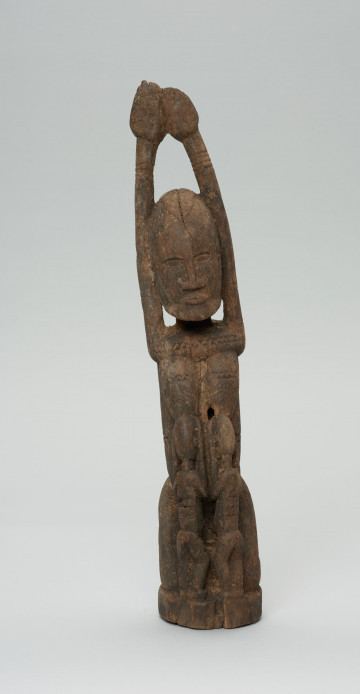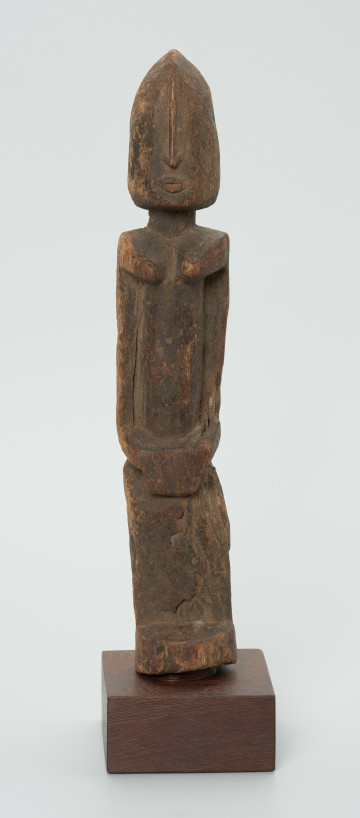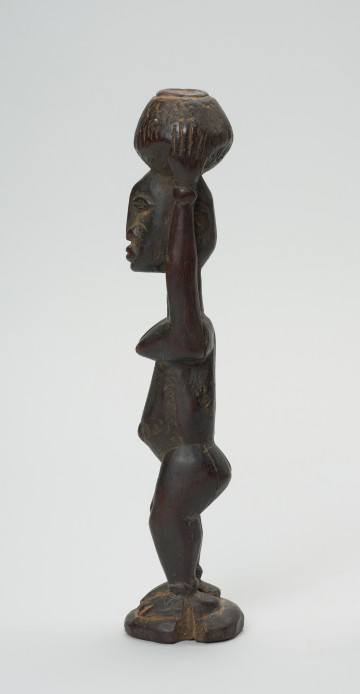
Figure - woman with child
między 1951 — 2000
National Museum in Szczecin
Part of the collection: Collection of Dogonian art
The figurine depicts a woman with a bulging belly suggesting pregnancy. A pregnant woman is referred to in the Dogo-so language as ya bere kine (a woman with a full belly). If a Dogon woman dies in this state or during childbirth, she is called yapilu. Her burial is surrounded by secrecy, takes place late at night and is attended only by men - the priest Niem Kadiun and his assistants Tirim associated with the cult of Yapirim, the protective deity of women. The husband of the deceased also takes part in the funeral. No one else should see the yapilu body. The corpse of a pregnant woman cannot be buried directly in the ground. According to the Dogon, a woman who only a few hours earlier was living proof of her fertility, now, after death, may infect the ground in which she would be buried with her lack of fertility. In the vicinity of the Bandiagara Escarpment, where the dead are deposited in rock caves, it does not seem to be a problem, while in the Gondo and Seno Plains, the body of yapilu is placed in a hollowed-out baobab trunk to meet the ban on burial in the ground. At the burial site, the baby is extracted from the mother's womb and buried next to it.The husband who assists with the burial must then leave the village for 30 days (in the case of burying a son) or 40 if the unborn child turned out to be a girl. He is sometimes allowed to spend this period alone and secluded in his own homestead. In exceptional cases, he can go out at night, but he must warn all the villagers in advance so that they have time to return and take shelter from him in their own homes. Contact with the yapilu's husband, as well as contact with her body, can transmit the misfortune of death during pregnancy or confinement to other women and the farmlands.
Ewa Prądzyńska
Author / creator
Dimensions
cały obiekt: height: 46 cm, width: 9,5 cm
Object type
figure
Creation time / dating
Creation / finding place
Identification number
Location / status

między 1951 — 2000
National Museum in Szczecin

między 1951 — 2000
National Museum in Szczecin

między 1951 — 2000
National Museum in Szczecin
DISCOVER this TOPIC
National Museum in Szczecin
DISCOVER this PATH
Educational path